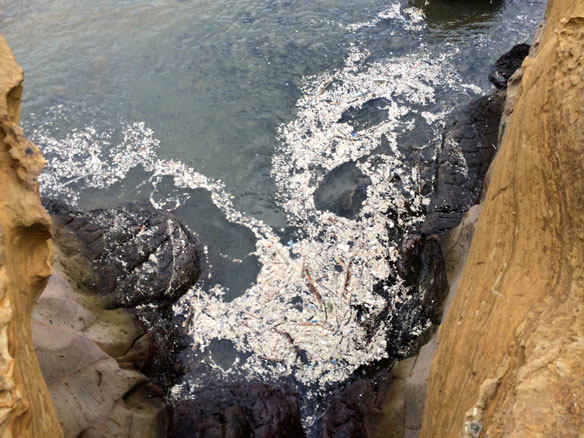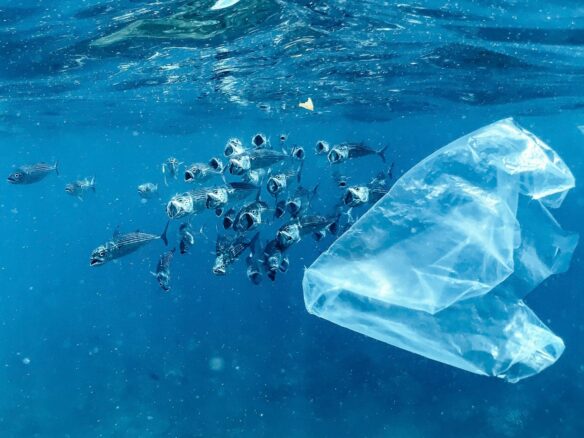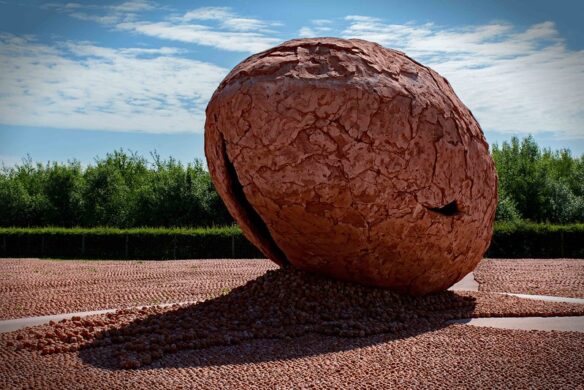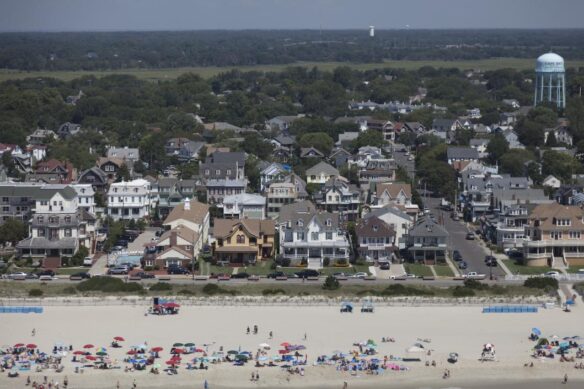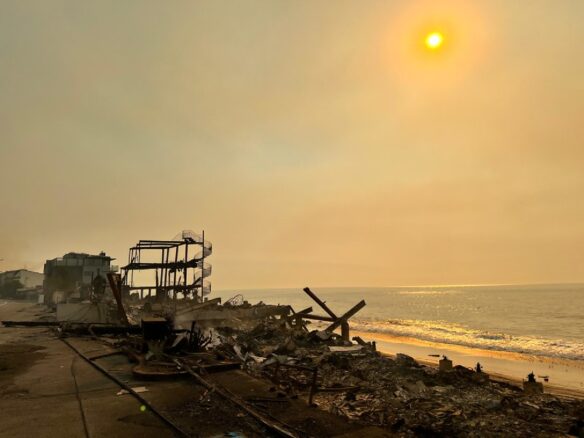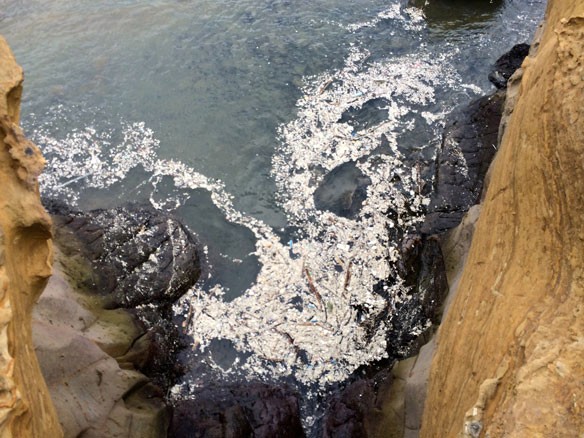
Whether plastics present a unanimously accepted and proven toxic challenge to marine life, and subsequently to humans, is one of the biggest challenges facing scientists right now.
All sea creatures, from the largest to the microscopic organisms are, at one point or another, swallowing the seawater soup instilled with toxic chemicals from plastic decomposition. Much of ocean’s life is in the microscopic size range and zooplankton is the base of the food chain. As environmentalists remind the world’s population: “…We are eating fish that have eaten other fish, which have eaten toxin-saturated plastics…” —Captions and Photo: © SAF — Coastal Care
Excerpts;
A landmark study finds huge quantities of plastic are entering the ocean. Since much of it isn’t accounted for, we should be concerned about where it’s ending up…
Read Full Article, Guardian UK
U.S. polluting ocean with trash at alarming rate, CBS News
20 countries are responsible for more than 80 percent of the plastic going into the ocean annually. China is the worst, with about 2.4 million tons. The United States is number 20, responsible for about 750,000 pounds…
Leading scientists express rising concern about ‘microplastics’ in the ocean, Science Daily (07-11-2014)
Microplastics, microscopic particles of plastic debris, are of increasing concern because of their widespread presence in the oceans and the potential physical and toxicological risks they pose to organisms…
Accumulating Microplastic Threat to Shores, BBC News (01-27-2012)
Plastic debris < 1 mm (defined here as microplastic) is accumulating in marine habitats. Ingestion of microplastic provides a potential pathway for the transfer of pollutants, monomers, and plastic-additives to organisms with uncertain consequences for their health. Here, we show that microplastic contaminates the shorelines at 18 sites worldwide representing six continents from the poles to the equator, with more material in densely populated areas...
Toxins From Plastic Pollution Impacting Health Of Seabirds, ABC News Australia (09-25-2014)
The Plastic Found In a Single Turtle’s Stomach, Independent UK (Uploaded 03-24-2011)
Death by Plastic: Is Ocean Plastic Garbage Killing Whales?, Independent UK
From the coasts of California to Adriatic, Tasmania or Normandy, millions of tonnes of plastic debris dumped each year in the world’s oceans, could pose a lethal threat to whales, according to a scientific assessment to be presented at the International Whaling Commission this week. Ingestion of plastic refuse is emerging as a serious cause of disability and death for the large ocean-dwelling mammals…
Midway Journey II, An Environmental Tragedy Depicted
Five media artists, led by photographer Chris Jordan, traveled to Midway Atoll to witness the catastrophic effect of our disposable culture on some of the world’s most beautiful and symbolic creatures. But even more, they embarked on an introspective journey to confront a vitally relevant question: In this time of unprecedented global crisis, how can we move through grief, denial, despair and immobility into new territories of acceptance, possibility, and wise action?
Plastic Pollution / When The Mermaids Cry: The Great Plastic Tide, Coastal Care
The despondent effects and too numerous casualties of the great plastic tide are visible, but more alarmingly, beyond visual, which ought to prompt the perpetrators to choose no other path than the advocacy and culture of consistent and sustained behavioral changes…
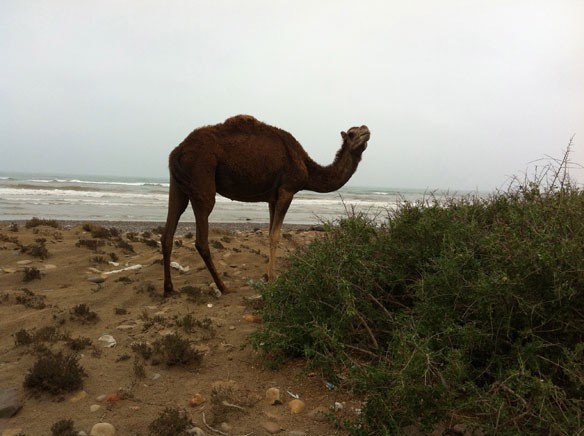
A study reports that as high as 50% of camel deaths are caused by plastic bags’s ingestion…and this was in 1997…— Smeadvisor
“When plastic ingestion occurs, it blocks the digestive tract, gets lodged in animals windpipes cutting airflow causing suffocation, or fills the stomach, resulting in malnutrition, starvation and potentially death. Indeed, it is found that debris often accumulates in the animals’ gut and give a false sense of fullness, causing the animal to stop eating and slowly starve to death.” —Captions and Photo: © SAF — Coastal Care

